
Tadine: The Serene Jewel of New Caledonia
Tadine, nestled on the island of Maré in New Caledonia, is a hidden paradise known for its stunning natural beauty and tranquil atmosphere. This picturesque town, surrounded by lush greenery and vibrant coral reefs, offers visitors a chance to unwind and connect with nature in a serene setting. The crystal-clear waters and pristine beaches of Tadine are perfect for snorkeling and diving enthusiasts. The underwater world here is teeming with colorful marine life and intricate coral formations, making it a haven for those looking to explore the ocean's wonders. For a more relaxed experience, visitors can enjoy a leisurely swim or simply bask in the sun on the soft, white sands. In addition to its natural attractions, Tadine boasts a rich cultural heritage. The local Kanak culture is deeply rooted in the area, and visitors can immerse themselves in traditional customs and practices. The town's market is a vibrant hub where you can find local handicrafts, fresh produce, and delicious island cuisine. Engaging with the friendly locals and learning about their way of life adds a unique dimension to the Tadine experience. Whether you're seeking adventure, relaxation, or cultural enrichment, Tadine in New Caledonia offers a diverse range of activities and experiences. Its unspoiled beauty and warm hospitality make it a must-visit destination for any traveler looking to escape the hustle and bustle of everyday life.
Local tips in Tadine
- Visit the local market early in the morning to get the freshest produce and unique handicrafts.
- Bring reef-safe sunscreen to protect the coral reefs while enjoying water activities.
- Rent a bicycle to explore the island at your own pace and discover hidden gems off the beaten path.
- Respect the local customs and traditions; always ask for permission before taking photos of people or cultural sites.
- Try the local dish 'Bougna,' a traditional Melanesian meal cooked in banana leaves, for an authentic taste of the island.
Tadine: The Serene Jewel of New Caledonia
Tadine, nestled on the island of Maré in New Caledonia, is a hidden paradise known for its stunning natural beauty and tranquil atmosphere. This picturesque town, surrounded by lush greenery and vibrant coral reefs, offers visitors a chance to unwind and connect with nature in a serene setting. The crystal-clear waters and pristine beaches of Tadine are perfect for snorkeling and diving enthusiasts. The underwater world here is teeming with colorful marine life and intricate coral formations, making it a haven for those looking to explore the ocean's wonders. For a more relaxed experience, visitors can enjoy a leisurely swim or simply bask in the sun on the soft, white sands. In addition to its natural attractions, Tadine boasts a rich cultural heritage. The local Kanak culture is deeply rooted in the area, and visitors can immerse themselves in traditional customs and practices. The town's market is a vibrant hub where you can find local handicrafts, fresh produce, and delicious island cuisine. Engaging with the friendly locals and learning about their way of life adds a unique dimension to the Tadine experience. Whether you're seeking adventure, relaxation, or cultural enrichment, Tadine in New Caledonia offers a diverse range of activities and experiences. Its unspoiled beauty and warm hospitality make it a must-visit destination for any traveler looking to escape the hustle and bustle of everyday life.
When is the best time to go to Tadine?
Iconic landmarks you can’t miss
Place des Cocotiers
Explore the beauty of Place des Cocotiers, a must-visit city park in Nouméa, blending stunning nature with vibrant local culture.
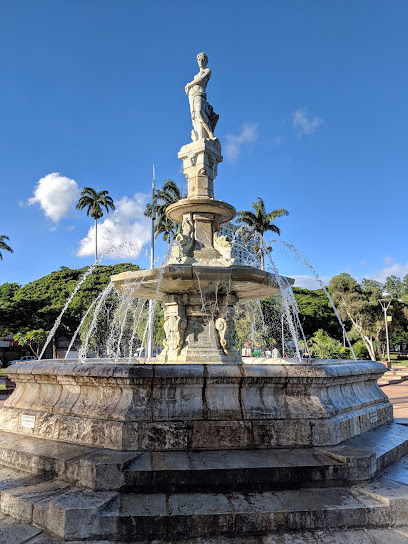
Tjibaou Cultural Centre
Experience the essence of New Caledonia at the Tjibaou Cultural Centre, where tradition meets modernity in stunning architectural beauty.
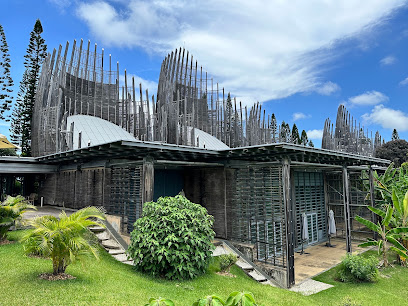
Amédée Lighthouse
Discover the stunning Amédée Lighthouse in New Caledonia, a historical gem offering breathtaking views, rich history, and vibrant marine adventures.
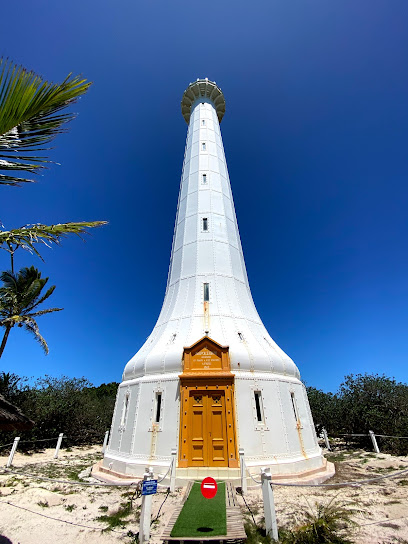
Yejele Beach
Experience the stunning beauty and tranquility of Yejele Beach, a tropical paradise in New Caledonia perfect for relaxation, snorkeling, and cultural exploration.
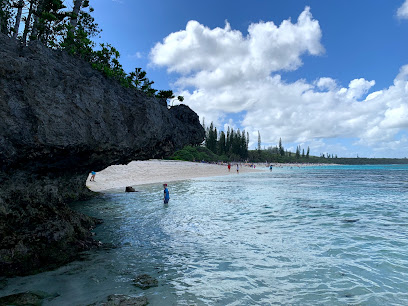
Maritime Museum of New Caledonia
Discover the rich maritime heritage of New Caledonia at the Maritime Museum in Nouméa – a fascinating journey through history and culture.
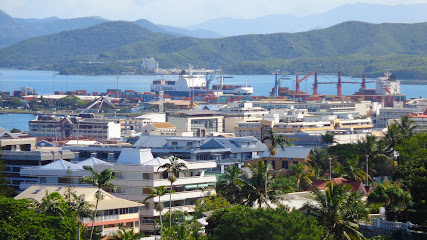
Fort Teremba
Explore the rich history of New Caledonia at Fort Teremba, an iconic heritage museum showcasing colonial architecture and captivating exhibits.
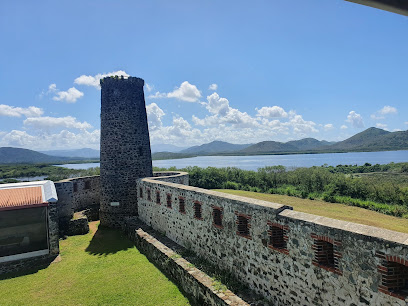
Jokin Cliffs
Explore the breathtaking Jokin Cliffs in New Caledonia, a natural wonder offering stunning views, adventure, and tranquility for all visitors.
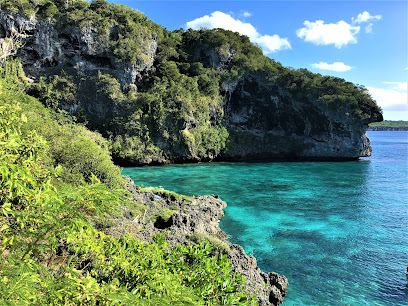
Mare
Experience the tranquil beauty of Mare, New Caledonia - a tropical island paradise with pristine beaches, rich culture, and vibrant marine life.
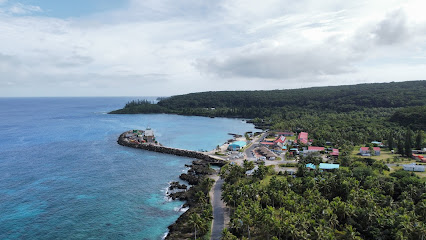
Hotel Nengone Village
Discover tranquility and adventure at Hotel Nengone Village, a serene haven in Noumea, New Caledonia, perfect for tourists seeking relaxation and exploration.

Kiki Plage
Discover the tranquil beauty of Kiki Plage, a tropical paradise in New Caledonia perfect for relaxation, adventure, and breathtaking sunsets.
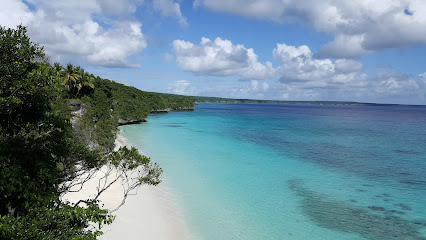
Château Hagen
Discover the vibrant culture of New Caledonia at Château Hagen, a stunning center showcasing art, history, and breathtaking architecture in Nouméa.
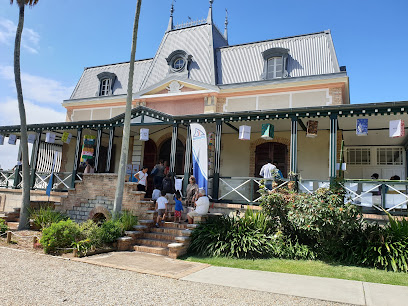
Aquarium Naturel
Explore the vibrant marine life of Aquarium Naturel in Tadine, New Caledonia, a natural aquarium that unveils the beauty of the underwater world.
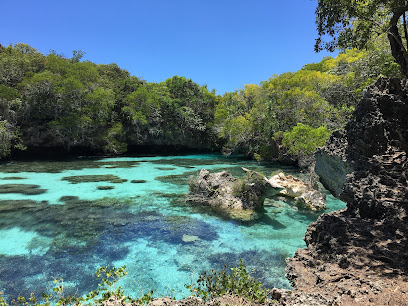
Notre Dame Du Pacifique
Experience spiritual tranquility and stunning ocean views at Notre Dame Du Pacifique, a must-visit landmark in Nouméa, New Caledonia.
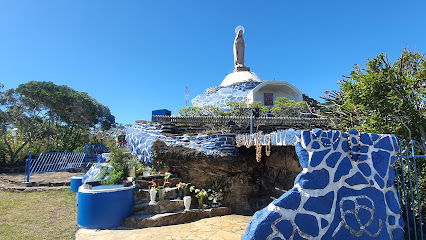
Le Saut Du Guerrier
Discover the breathtaking panoramic views at Le Saut Du Guerrier, a stunning observation deck in Wakone, New Caledonia, perfect for nature lovers and photographers.
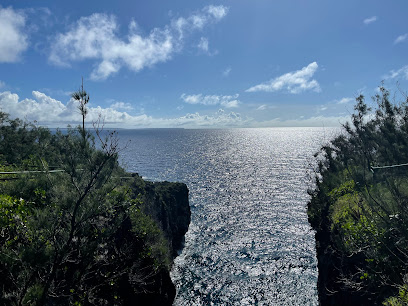
Maré Airport
Discover the natural beauty and rich culture of Maré, New Caledonia, starting from Maré Airport, your gateway to adventure in the South Pacific.
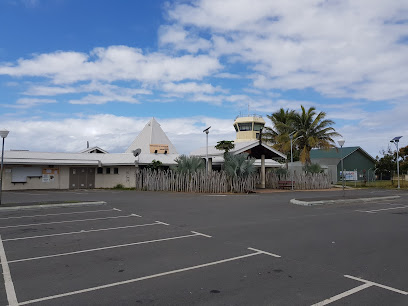
Unmissable attractions to see
Plage de Luengoni
Experience the breathtaking beauty of Plage de Luengoni, a serene paradise in New Caledonia's stunning coastal landscape, perfect for relaxation and adventure.
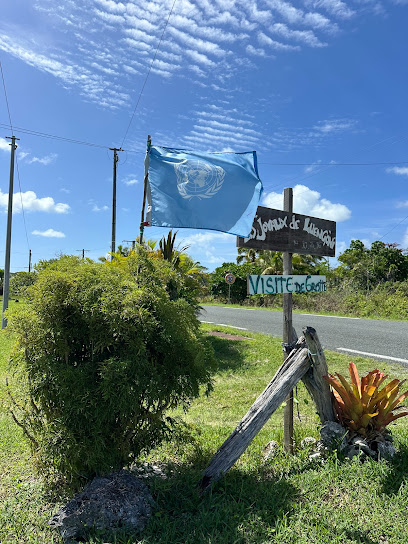
Église du Saint Nom de Marie à Mouli
Discover the serene beauty of Église du Saint Nom de Marie à Mouli, a tranquil Catholic church in the heart of New Caledonia's picturesque landscapes.
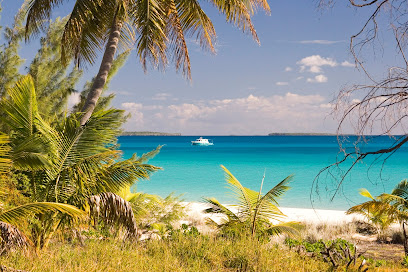
Essential places to dine
Le Roof
Experience exquisite dining at Le Roof, where exceptional cuisine meets breathtaking lagoon views in Nouméa.
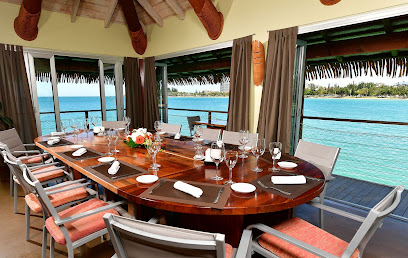
Marmite et Tire-Bouchon
Experience authentic New Caledonian cuisine at Marmite et Tire-Bouchon, where local flavors meet fine dining in the heart of Nouméa.
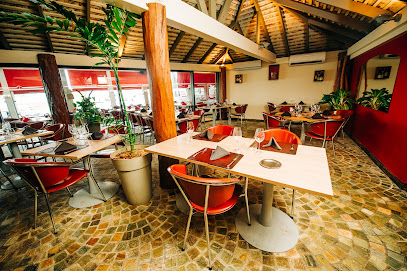
L'Atelier Gourmand
Experience exquisite French cuisine with a local twist at L'Atelier Gourmand in Nouméa's picturesque Anse Vata.
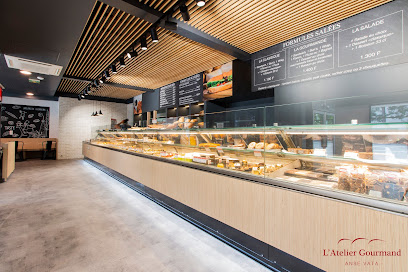
Le Faré du Palm Beach
Experience exquisite local cuisine with stunning ocean views at Le Faré du Palm Beach in Nouméa, New Caledonia.
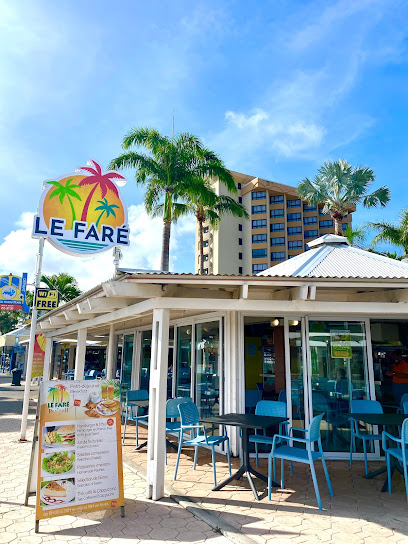
L'Ed'Zen
Experience culinary excellence at L'Ed'Zen in Nouméa—where local flavors meet exquisite dining in a tropical paradise.
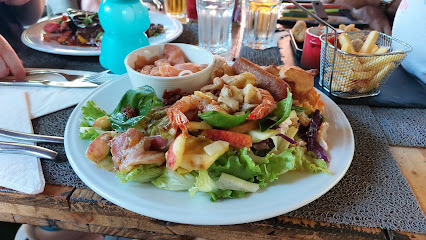
Casa Italia
Experience authentic Italian cuisine at Casa Italia in Nouméa - where every dish tells a story of tradition and flavor.
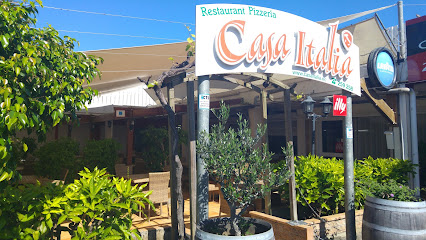
La Table des Gourmets
Discover authentic New Caledonian flavors at La Table des Gourmets in Nouméa - where culinary excellence meets warm hospitality.
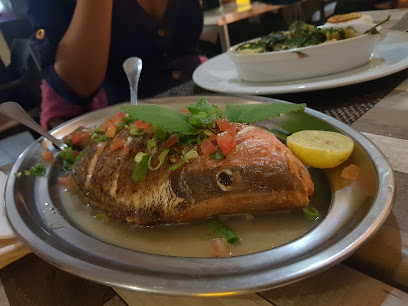
Le Miretti-Gascon
Discover the vibrant flavors of New Caledonia at Le Miretti-Gascon - where every meal is an unforgettable experience.
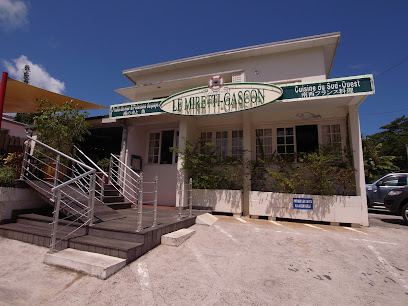
Restaurant La Chaumière
Experience authentic French cuisine at Restaurant La Chaumière in Nouméa, where exquisite flavors meet tropical charm.
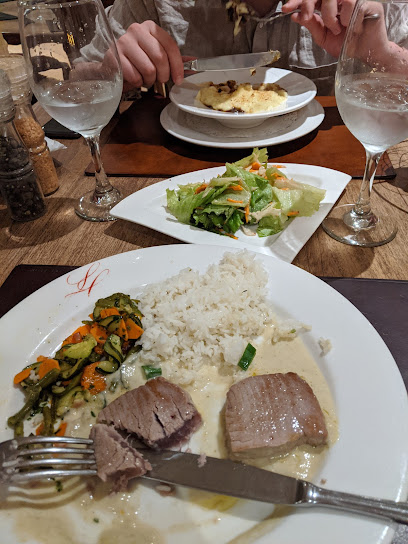
Le Ponton
Experience exquisite local cuisine with breathtaking views at Le Ponton, Nouméa's premier dining destination.
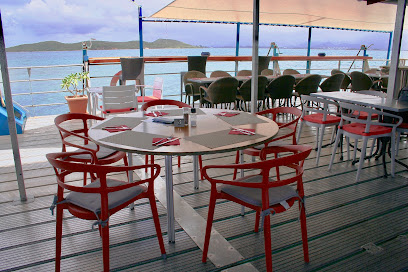
La Pirogue
Discover La Pirogue: A stunning waterfront restaurant in Nouméa serving exquisite local cuisine with breathtaking lagoon views.
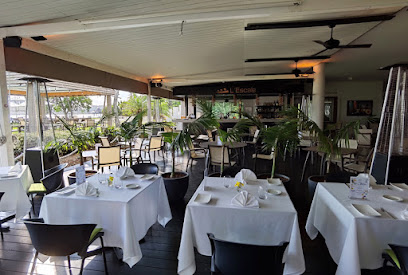
The Harlequin
Discover the flavors of New Caledonia at The Harlequin - where local ingredients meet exquisite culinary artistry.
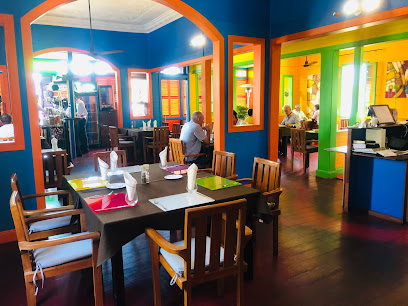
Restaurant Manuia
Experience the flavors of New Caledonia at Restaurant Manuia - where exquisite cuisine meets breathtaking ocean views.
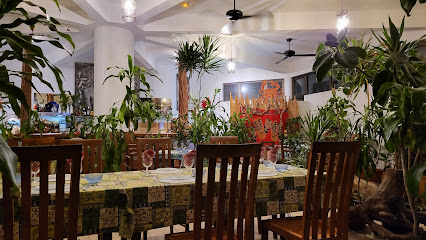
Restaurant Les Bouches Des Gouts
Experience exquisite cuisine with stunning views at Restaurant Les Bouches Des Gouts in Nouméa, where local flavors meet international flair.
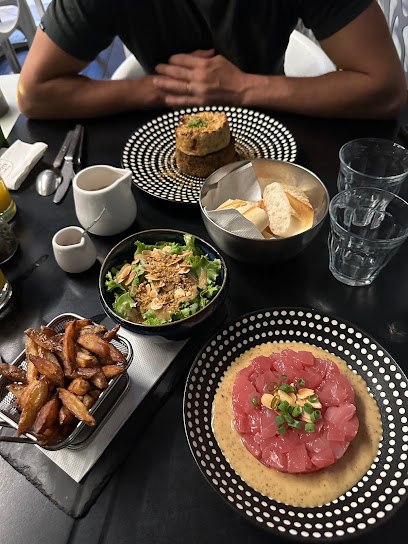
Le Relais de la Vallée 2.0
Discover exquisite French cuisine at Le Relais de la Vallée 2.0 in Nouméa—where every meal is a culinary masterpiece amidst stunning tropical beauty.
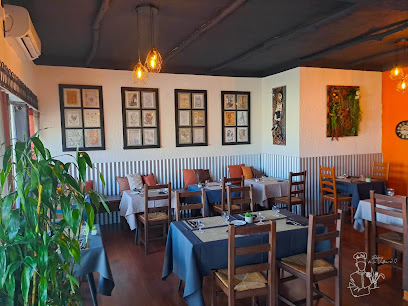
Markets, malls and hidden boutiques
Baie Des Citrons Shopping Complex
Experience the best of shopping and dining at Baie Des Citrons Shopping Complex, the heart of Nouméa's vibrant retail scene.
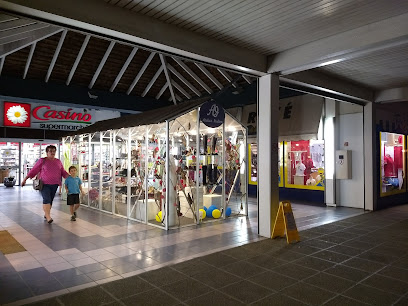
Tadine Bay
Explore the serene beauty of Tadine Bay in New Caledonia, a stunning destination for relaxation, adventure, and unforgettable experiences.
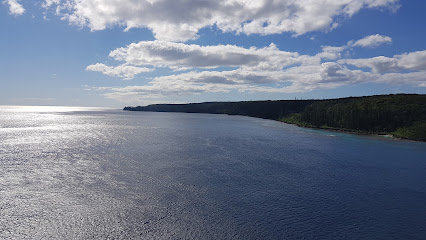
Maison de la Perle
Discover the exquisite beauty of New Caledonian pearls at Maison de la Perle, a premier jewelry destination in the heart of Nouméa.
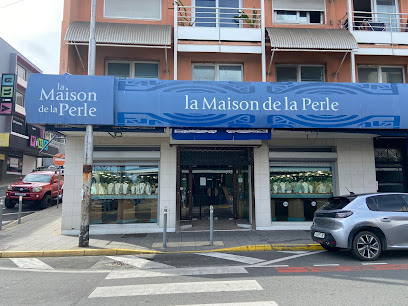
Mini Marché - La Grande Épicerie de Nouméa
Explore the vibrant Mini Marché in Nouméa for fresh produce, local delicacies, and a taste of New Caledonia's culinary heritage.
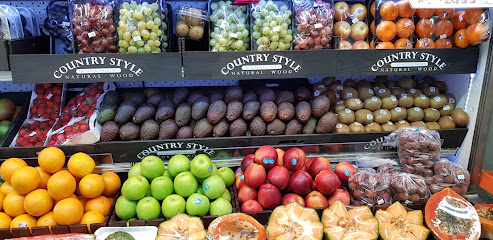
ONO Factory
Explore handcrafted treasures and local honey delights at ONO Factory in Lifou, New Caledonia – a paradise for souvenir seekers and culture enthusiasts.
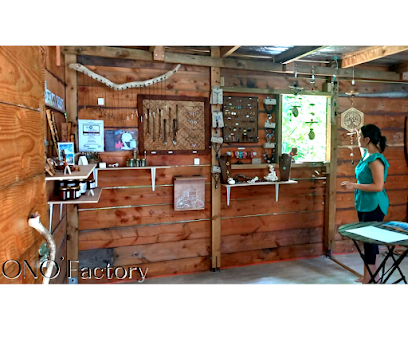
Golf Wabao
Discover the essence of New Caledonia at Golf Wabao, your local general store for unique souvenirs and everyday essentials.
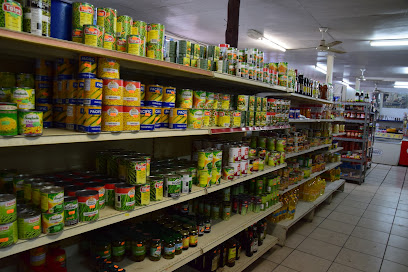
Epicerie MEICO
Experience the vibrant local culture and flavors at Epicerie MEICO, a must-visit grocery store in Tuo, New Caledonia.

ESCAPE NEW CALEDONIA - THULE
Discover the ultimate adventure gear at Escape New Caledonia - Thule, your essential stop for outdoor exploration in New Caledonia.
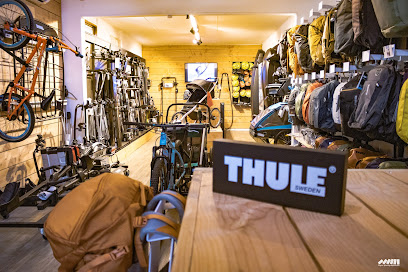
Trop Tard
Explore local flavors and fresh produce at Trop Tard, a charming grocery store in Tadine, New Caledonia, perfect for tourists and locals alike.
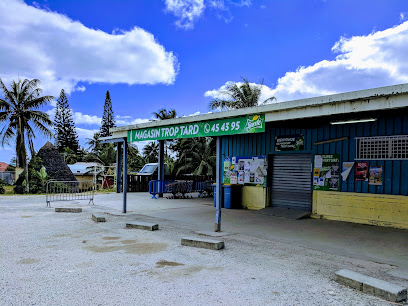
Magasin Tolosa
Discover local flavors and daily essentials at Magasin Tolosa, your go-to convenience store in Luecila, New Caledonia.

Marché de La Roche
Discover the vibrant Marché de La Roche in New Caledonia - a shopping paradise filled with local culture, delicious food, and unique treasures.

MOOD
Discover the stylish essence of New Caledonia at MOOD Clothing Store, where local fashion meets vibrant culture in the heart of Nouméa.
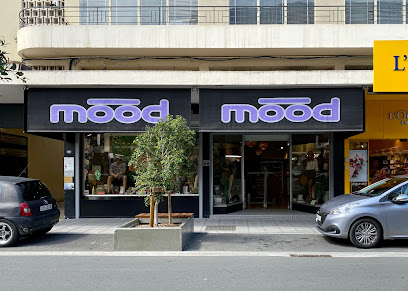
Bükìt the concept store
Explore Bükìt, the concept store in Nouméa, for unique local crafts and beautiful souvenirs that capture the essence of New Caledonia.
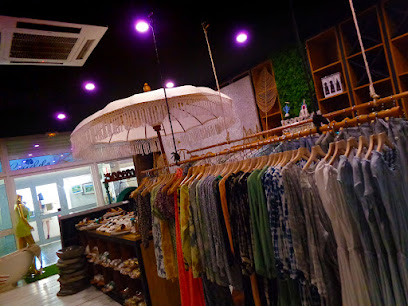
Takone SARL
Explore unique local products and handcrafted treasures at Takone SARL, the premier outlet store in New Caledonia, where culture meets creativity.
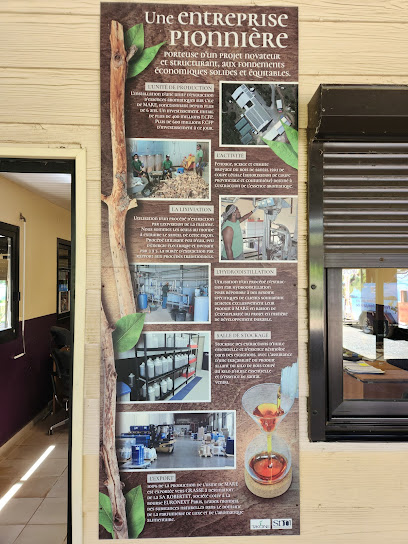
La Découverte
Explore the charm of New Caledonia at La Découverte, your go-to gift shop for authentic local crafts and souvenirs in the heart of Nouméa.
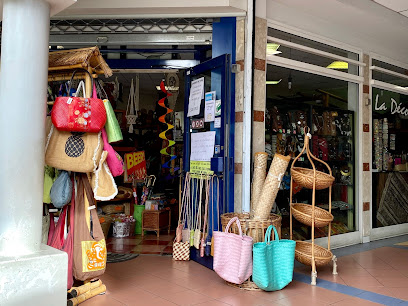
Essential bars & hidden hideouts
La Bodega del Mar
Experience the best of local flavors at La Bodega del Mar, Nouméa's premier tapas bar with stunning coastal views.
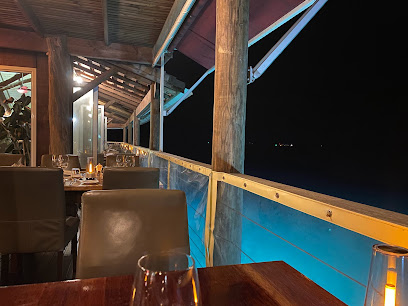
MV Lounge
Experience the vibrant nightlife of Nouméa at MV Lounge, where refreshing drinks and great music come together in a stunning coastal setting.
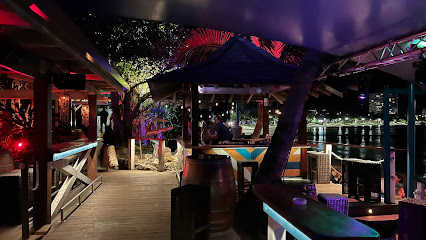
Le TAMANOU BEACH
Experience the best of New Caledonian cuisine with ocean views at Le Tamanou Beach, a culinary paradise for food lovers.
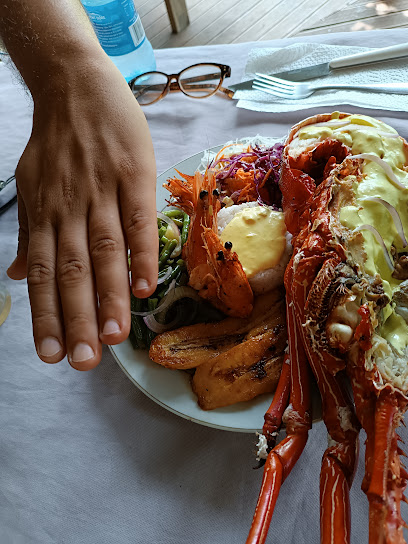
L'Etrave
Discover the vibrant atmosphere of L'Etrave, a premier bar in Nouméa offering stunning views and delicious drinks.
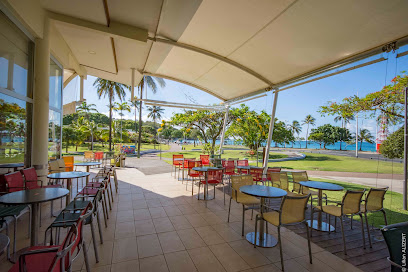
Restaurant l'Occitan
Experience the authentic flavors of Southwest France at Restaurant l'Occitan, a family-friendly seafood haven in New Caledonia.
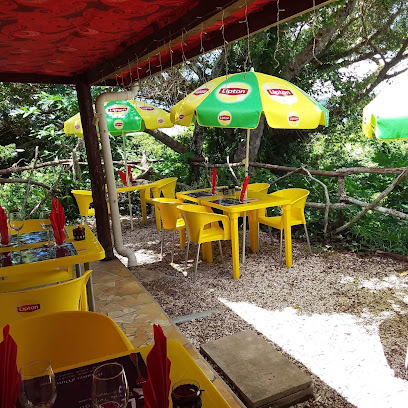
L’Endroit Rooftop
Discover the vibrant atmosphere and stunning views at L’Endroit Rooftop, Nouméa's premier cocktail bar with a local twist.
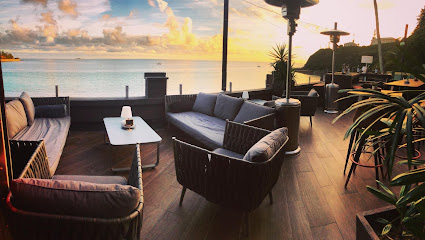
Codebar
Discover the vibrant nightlife at Codebar, Nouméa's premier bar offering stunning views, eclectic drinks, and an inviting atmosphere for all.
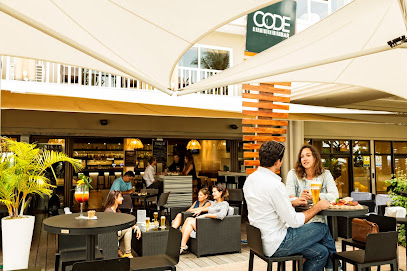
Bar-restaurant Le Globe-Trotteur
Experience the vibrant flavors of New Caledonia at Bar-restaurant Le Globe-Trotteur, where local cuisine meets a lively atmosphere.
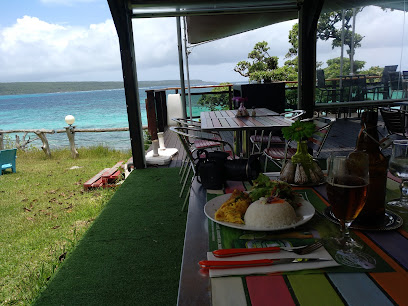
Creek Bar
Experience the essence of New Caledonia at Creek Bar – a vibrant spot for drinks, bites, and breathtaking views.
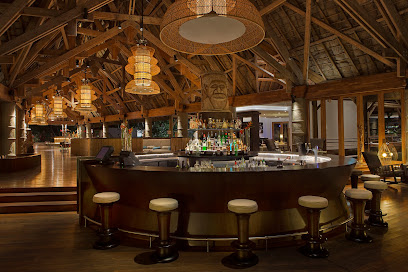
Table d’hôte chez Mejo
Explore Table d’hôte chez Mejo in Nece for a delightful family dining experience featuring authentic New Caledonian cuisine in a welcoming atmosphere.
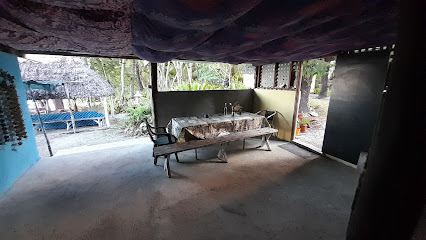
Snack Hnala
Discover the flavors of New Caledonia at Snack Hnala, a charming restaurant in Tadine offering local and international cuisine.

Latitude 22
Discover Latitude 22 in Nouméa, where tropical vibes meet exquisite cocktails and breathtaking ocean views for an unforgettable evening.
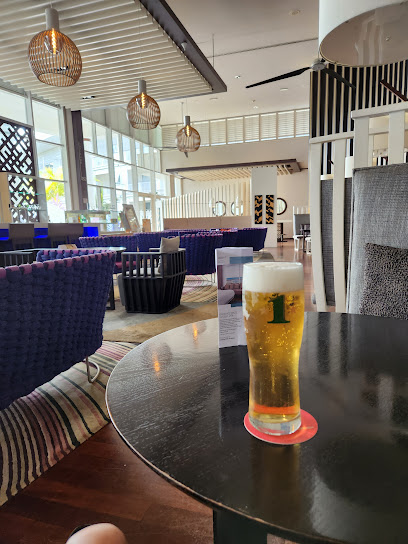
Oasis de Belair
Experience authentic New Caledonian cuisine at Oasis de Belair, where local flavors meet stunning scenery in the heart of Tadine.
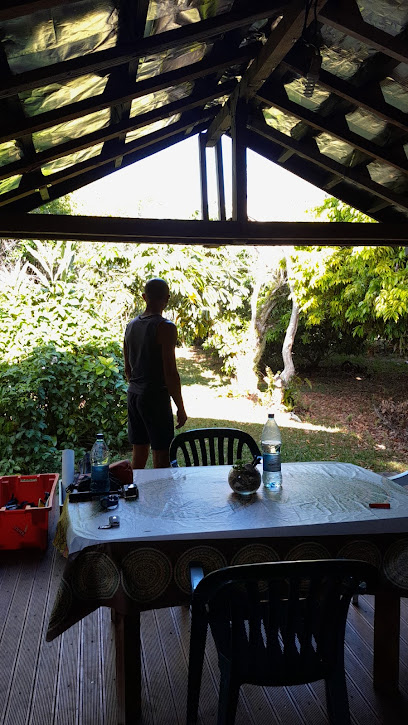
Snack les 3 Pins
Discover the vibrant flavors of Snack les 3 Pins, a fast food haven in New Caledonia offering delicious bites and a welcoming atmosphere for all travelers.
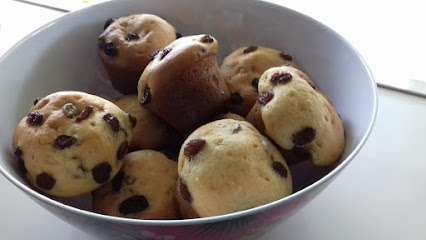
Local Phrases
-
- HelloBonjour
[bon-zhoor] - GoodbyeAu revoir
[oh ruh-vwar] - YesOui
[wee] - NoNon
[nohn] - Please/You're welcomeS'il vous plaît
[seel voo pleh] - Thank youMerci
[mehr-see] - Excuse me/SorryExcusez-moi/Désolé
[ex-koo-zay mwah/deh-zoh-lay] - How are you?Comment ça va?
[koh-mohn sah vah] - Fine. And you?Bien. Et toi?
[byahn. ay twah] - Do you speak English?Parlez-vous anglais?
[par-lay voo ahn-glay] - I don't understandJe ne comprends pas
[zhuh nuh kohm-prahnd pah]
- HelloBonjour
-
- I'd like to see the menu, pleaseJe voudrais voir le menu, s'il vous plaît
[zhuh voo-dray vwar luh muh-nyuh, seel voo pleh] - I don't eat meatJe ne mange pas de viande
[zhuh nuh mahnj pah duh vee-ahnd] - Cheers!Santé!
[sahn-tay] - I would like to pay, pleaseJe voudrais payer, s'il vous plaît
[zhuh voo-dray pay-ay, seel voo pleh]
- I'd like to see the menu, pleaseJe voudrais voir le menu, s'il vous plaît
-
- Help!Au secours!
[oh suh-coor] - Go away!Allez-vous en!
[ah-lay voo zahn] - Call the Police!Appelez la police!
[ah-peh-lay lah poh-lees] - Call a doctor!Appelez un médecin!
[ah-peh-lay uh may-duh-sahn] - I'm lostJe suis perdu
[zhuh swee pair-doo] - I'm illJe suis malade
[zhuh swee mah-lahd]
- Help!Au secours!
-
- I'd like to buy...Je voudrais acheter...
[zhuh voo-dray ash-tey] - I'm just lookingJe regarde juste
[zhuh ruh-gahrd zhewst] - How much is it?Combien ça coûte?
[kohm-byen sah koot] - That's too expensiveC'est trop cher
[say troh shair] - Can you lower the price?Pouvez-vous baisser le prix?
[poo-vey voo beh-say luh pree]
- I'd like to buy...Je voudrais acheter...
-
- What time is it?Quelle heure est-il?
[kell uhr ay-teel] - It's one o'clockIl est une heure
[eel ay oon uhr] - Half past (10)Dix heures et demie
[dees uhr ay duh-mee] - MorningMatin
[mah-tahn] - AfternoonAprès-midi
[ah-pray mee-dee] - EveningSoir
[swah] - YesterdayHier
[yehr] - TodayAujourd'hui
[oh-zhoor-dwee] - TomorrowDemain
[duh-mahn] - 1Un
[uhn] - 2Deux
[duh] - 3Trois
[twah] - 4Quatre
[kah-truh] - 5Cinq
[sank] - 6Six
[sees] - 7Sept
[sept] - 8Huit
[wheat] - 9Neuf
[nuhf] - 10Dix
[dees]
- What time is it?Quelle heure est-il?
-
- Where's a/the...?Où se trouve...?
[oo suh troov] - What's the address?Quelle est l'adresse?
[kell ay la-dress] - Can you show me (on the map)?Pouvez-vous me montrer (sur la carte)?
[poo-vey voo muh mohn-tray (soor lah kart)] - When's the next (bus)?Quand est le prochain (bus)?
[kahn ay luh proh-shahn (boos)] - A ticket (to ....)Un billet (pour ....)
[uhn bee-yay (poor)]
- Where's a/the...?Où se trouve...?
History of Tadine
-
The first inhabitants of Tadine were the indigenous Kanak people, who settled in the region thousands of years ago. Their rich culture and traditions have been preserved through oral history, art, and community practices. The Kanak people have a deep connection to the land and sea, which is evident in their customs and way of life.
-
The arrival of European explorers in the 18th century marked a significant turning point in the history of Tadine. French explorer Jules Dumont d'Urville visited the Loyalty Islands, including Maré Island where Tadine is located, in 1827. This encounter led to increased interest in the region from European powers, eventually resulting in the establishment of French colonial rule.
-
In the mid-19th century, Christian missionaries, primarily from the London Missionary Society, arrived in Tadine. Their efforts to convert the local population to Christianity had a profound impact on the social and cultural fabric of the region. Churches and mission schools were established, which played a crucial role in educating the local population and introducing Western practices.
-
New Caledonia, including Tadine, became a French colony in 1853. The colonial era brought significant changes to the region, including the introduction of new administrative structures, economic exploitation, and social changes. The French administration imposed their governance, which often led to conflicts and resistance from the indigenous Kanak people.
-
During World War II, New Caledonia served as a crucial base for Allied forces in the Pacific theater. Tadine, like other parts of the island, saw an influx of military personnel and resources. The war brought both challenges and opportunities for the local population, including economic benefits from increased activity and infrastructure development.
-
After World War II, Tadine and the broader Maré Island experienced significant development. Infrastructure improvements, such as roads and public facilities, were implemented. The region also saw advancements in education and healthcare, contributing to the overall improvement in the quality of life for its inhabitants.
-
In recent decades, there has been a strong movement towards cultural revival and preservation among the Kanak people in Tadine. Efforts have been made to revive traditional practices, languages, and customs. Festivals, cultural centers, and community activities play an essential role in maintaining and celebrating the rich heritage of the region.
-
Today, Tadine is a blend of traditional Kanak culture and modern influences. The town serves as a gateway for visitors exploring the natural beauty and cultural richness of Maré Island. Tourism has become an important part of the local economy, with visitors drawn to the pristine beaches, vibrant markets, and welcoming communities.
Tadine Essentials
-
Tadine is located on Maré Island, part of the Loyalty Islands in New Caledonia. The easiest way to get there is by flying into Nouméa’s La Tontouta International Airport (NOU). From Nouméa, you can catch a domestic flight to Maré Airport (MEE). Alternatively, you can take a ferry from Nouméa to Tadine; the ferry service is operated by Betico and provides a scenic route across the ocean.
-
Once in Tadine, transportation options include rental cars, bicycles, and scooters. Taxis are also available but may need to be arranged in advance. The town is small enough to explore on foot, and many of the local attractions are within walking distance. For exploring the rest of Maré Island, renting a car or scooter is the most convenient option.
-
The official currency is the CFP Franc (XPF). Credit cards are accepted in some hotels, restaurants, and shops, but it is advisable to carry cash, especially for smaller purchases or in more remote areas. ATMs are available, but it is wise to withdraw sufficient cash in Nouméa before traveling to Maré Island.
-
Tadine is generally safe for tourists. However, like any travel destination, it is advisable to take standard precautions. Avoid walking alone at night in unfamiliar areas and keep an eye on your belongings in crowded places. There are no specific high-crime areas targeting tourists, but it is always best to stay vigilant and aware of your surroundings.
-
In case of emergency, dial 17 for the police, 15 for medical emergencies, and 18 for fire services. There is a local medical clinic in Tadine, but for serious medical conditions, it may be necessary to travel to Nouméa. It is recommended to have travel insurance that covers medical emergencies.
-
Fashion: Do wear casual, comfortable clothing suitable for a tropical climate. Avoid wearing revealing clothing, especially in villages. Religion: Do respect local customs and traditions. Some areas may have specific dress codes. Public Transport: Do be respectful and courteous to drivers and other passengers. Don't play loud music or eat on public transport. Greetings: Do greet people with a friendly wave or a handshake. A slight bow of the head is also a sign of respect. Eating & Drinking: Do try local foods and beverages. Don't refuse food offerings, as it is considered impolite.
-
To experience Tadine like a local, visit the local markets where you can buy fresh produce and traditional New Caledonian goods. Engage with locals, as they are often friendly and willing to share stories about the island's history and culture. Don't miss visiting the beautiful beaches and scenic viewpoints. For a unique experience, participate in a traditional Kanak feast, which offers a taste of local cuisine and customs.
Nearby Cities to Tadine
-
Things To Do in Nouméa
-
Things To Do in La Foa
-
Things To Do in Bourail
-
Things To Do in Isangel
-
Things To Do in Lenakel
-
Things To Do in Hienghène
-
Things To Do in Port Vila
-
Things To Do in Lamap
-
Things To Do in Lakatoro
-
Things To Do in Norsup
-
Things To Do in Luganville
-
Things To Do in Cascade
-
Things To Do in Burnt Pine
-
Things To Do in Ball Bay
-
Things To Do in Kingston





